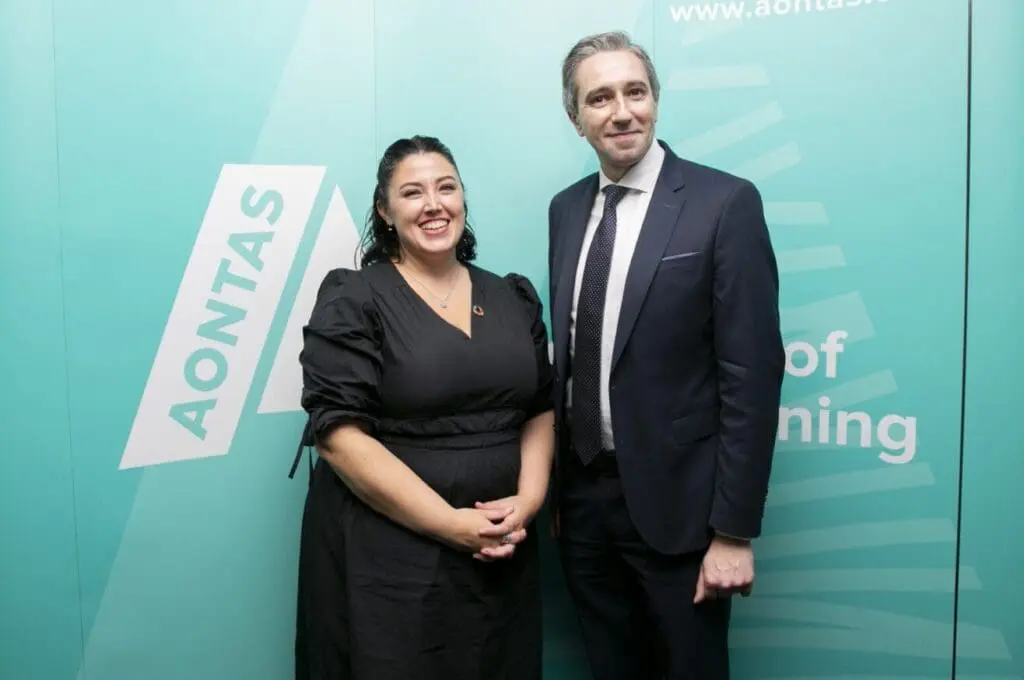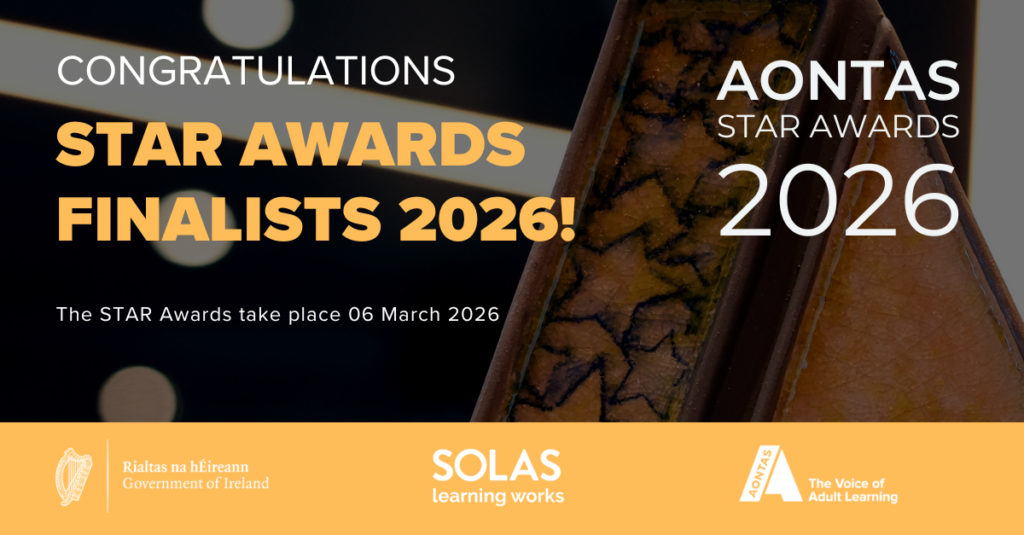Writing by Dr Kate Smyth, Strategic Comms Officer
Last week, Simon Harris TD, Minister for Further and Higher Education, Research, Innovation and Science announced an expansion of alternative pathways from further education into higher education, in ongoing efforts to move away from the Leaving Certificate and the “points race” as the focus of education in Ireland
The Unified Tertiary Education system features degree courses that start in a further education college and allow students to move seamlessly to universities. This means that students can earn a university degree without a Leaving Cert, something which, the Minister says, years later adults “still have bad dreams about and wake up in a panic about.” This system, which was announced last summer, is now being expanded to feature more courses in different fields, including engineering, construction, nursing, music, business, and software development.
Speaking about the announcement, our CEO Dearbháil Lawless said:
“It is heartening to see a focus on alternative pathways. There is a lot to be gained from us working together across tertiary education and developing new courses that value the diversity of strengths people have. We at AONTAS fully support a move away from the ‘points race’. Yet, the people who have been left behind or excluded from the system previously will still struggle to engage in or complete programmes if we can’t provide them with realistic financial support, suitable transport, and cost-effective accommodation. What is meant to be an uplifting experience will only add further stress and isolation, if we do not address the conditions that make adult education a reality for all.”
Even more joint programmes between Further Education and Higher Education are expected to be announced in 2025. According to The Irish Times, programmes have already been put forward by the University of Limerick, University of Galway, National College of Art and Design, Mary Immaculate College and University College Cork.
We at AONTAS have long believed that the Leaving Certificate has been and continues to be a cause of indirect discrimination against people from more working-class communities or those living in poverty. We have consistently advocated for alternative and flexible pathways across the Tertiary system.
The flexibility offered by this system is a positive development – especially for people who may have had some negative experiences at school, or who may be coping with challenges ranging from mental health to caring responsibilities to disabilities/different abilities. Allowing people to have the option to start their course in their local Further Education and Training Centre, and then progress to university, is a progressive change, and it is great to see more options and courses available in a broader number of subjects.
Financial support for those at risk of poverty
However, it remains essential to provide the necessary financial support for people from under-resourced areas and those at risk of poverty, who don’t have equal access to education or the conditions people need in order to learn and stay in school. This includes, among other things, stable accommodation, accessible transport, and affordable childcare.
Given our focus on advocating for learning that is based on social justice and equality, we disagree with an over-emphasis on skills for work when it comes to adult education in Ireland. This can relate more to the needs of employers and the labour market rather than the needs of people, communities, and society. For instance, Minister Harris spoke about the rise in the number of people undertaking apprenticeships in Ireland, with 9,000 new registrations last year, bringing the total to a record 27,500 people. The Minister spoke about the need for more “craft apprenticeships in order to have the skilled workforce to tackle the housing shortages across Ireland.”
While we are glad to see recognition that one size does not “fit all”, the appropriate funding needs to be in place in order to support learners, rather than employers, first – and with specific focus on those who have not had equal opportunities to access education in the past.
This is why our “Who Does It Cost?” policy discussion, as part of this year’s Adult Learners’ Festival, will focus on policy solutions to the growing levels of poverty and income inequality for adult learners.





